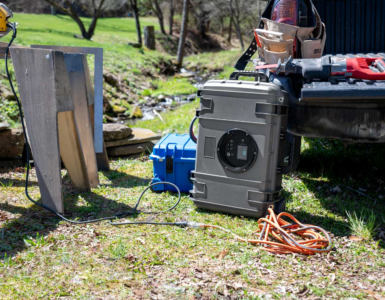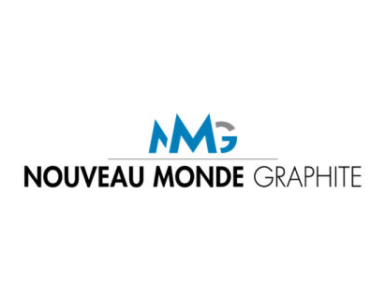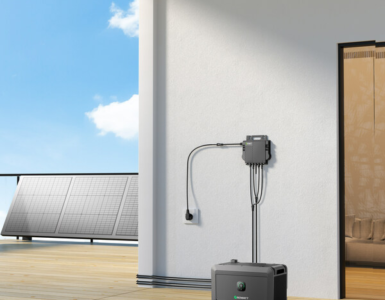Only the top nine battery companies are expected to survive in the global EV battery market – SK On.
Market research firm Benchmark Mineral Intelligence (BMI) recently released a report predicting that the top nine out of about 120 battery companies around the world will account for more than half of the global electric vehicle (EV) battery production capacity in the future.
According to the report, the global production capacity of lithium-ion batteries is expected to exceed 7TWh by 2031, and the nine companies are likely to supply more than 3.5TWh.
BMI defines these nine companies as Tier 1 companies, which are battery companies that can serve multinational automakers outside of China. Korean companies, including SK On, Samsung SDI, and LG Energy Solution, are among the Tier 1 companies. CATL, Panasonic, BYD, and Envision AESC are also included in the list.
🔥 What about we co-host a webinar? Let's educate, captivate, and convert the battery economy!
Batteries News is the global go-to online magazine for the battery industry, we can help you host impactful webinars that become a global reference on your topic and are an evergreen source of leads. Click here to request more details
The battery production capacity in China is more than twice that of all other countries combined. However, many of them are known to have a relatively low quality that is difficult to meet the requirements of global automakers. Considering this, only battery companies that can secure a high market share in the EV market outside of China or grow rapidly to maintain their market position are expected to survive.
SK On, which has the highest growth rate among the three Korean battery companies, stands out as a competitive player in the market. SK On had a 14.7 percent share from January to July this year and recorded a 108.1 percent growth rate, the highest among Korean companies. It was ranked fourth globally after LG Energy Solution, Panasonic, and CATL.
Even in the overall EV battery market, including China, SK On has grown from 9th place in 2019 to 5th place in 2021. According to SNE Research, it was ranked 5th globally in the cumulative sales rankings from January to August this year. Compared to the same period last year, it grew 99.2 percent, the fastest among the three Korean companies.
LG Energy Solution ranked No.1 globally in the global market, excluding China. LG Energy Solution maintained second place in the global market after CATL on a cumulative basis from January to August but only increased by 10 percent compared to the same period last year.
CATL has also rapidly expanded its share in the global market outside China. CATL is growing its market share in the markets outside China as it recorded an 18.6 percent market share from January to July this year, chasing Panasonic’s 19.5 percent market share, and is rapidly increasing its market share outside China.
Samsung SDI ranked fifth with 11.4 percent market share in the markets, excluding China, behind SK On. It also fell 6th place in the global EV market, behind SK On and BYD in China. The growth rate was 59.7 percent, ranking second among Korean companies.
According to industry insiders, Samsung SDI still maintains its ranking, but considering the slow expansion of production capacity, such as overseas plant investment plans, there are concerns that it will be caught up with other battery companies, such as CALB and Guoxuan in China within a few years.
Samsung SDI’s market share gap with the 6th-ranked CALB decreased from 2.5 percent in January-August last year to 0.9 percent in the same period this year. The gap with Guoxuan, the 7th largest company in market share, also decreased from 3.4 percent last year to 2 percent this year.
Amid intense competition among battery companies, many companies, such as BEC and LEJ, have disappeared from the global market share rankings. The growth rate of Panasonic, the only Japanese company in the top list, increased by 5.3 percent over the same period in the previous year, below the market’s average growth rate of 78.7 percent.
In the case of SK On, not only the battery market share but also the production capacity that backed up the battery market share is expected to grow more than 294 times from 1.7GWh in 2017 to 500GWh in 2030.
SK On plans to expand its production capacity to 77GWh by the end of 2022. Considering BMI’s forecast, if the scale of batteries produced outside China in 2031 is 3.5TWh, it is calculated that SK On will produce 14 percent of the batteries.
SK On is also rapidly enhancing its production yield as much as the production capacity of global battery factories such as Hungary and the United States is increasing.
SK On spokesperson said:
The initial yield of overseas plants fell within the expected range.
“Although there may be slight differences depending on the degree of process efficiency at each plant, the yield is continuously improving at a noticeable rate.”
READ the latest Batteries News shaping the battery market
Only the top nine battery companies are expected to survive in the global EV battery market, November 1, 2022








